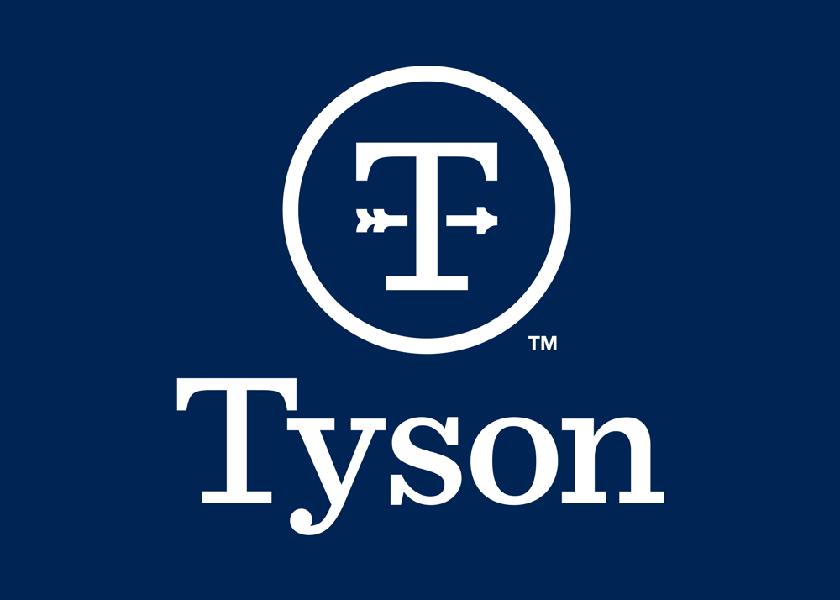Tyson Foods to Eliminate 10% of Corporate Jobs, 15% of Senior Leaders

Tyson Foods Inc will eliminate about 10% of corporate jobs and 15% of senior leadership roles, Chief Executive Donnie King told employees on Wednesday.
The layoffs are the latest cost-cutting move for the biggest U.S. meat company by sales as it grapples with declining profit and struggles to improve results in its iconic chicken business.
Discussions with most affected employees are slated to take place this week, King said in a memo to employees seen by Reuters. Shares closed 1.1% lower at $60.35 on Wednesday.
"We will drive efficiency by focusing on fewer initiatives with greater intensity and removing duplication of work," King said.
Tyson had about 6,000 U.S. employees working in corporate offices as of Oct. 1 and 118,000 workers at non-corporate sites such as meat plants and warehouses, according to regulatory filings.
The eliminated roles in senior leadership are mostly vice presidents and senior vice presidents, a company spokesperson said.
Some corporate employees already quit after Tyson said in October it was relocating all corporate jobs to its headquarters in Springdale, Arkansas. The 10% reduction in corporate roles is not due to employees leaving the company rather than relocating to Arkansas, a spokesperson said.
A recent overhaul in Tyson's executive leadership left some investors and analysts nervous.
The company fired Chris Langholz as president of its international business in August. In September, Tyson said Noelle O'Mara, who led its prepared foods division, had left the company. John R. Tyson, great-grandson of the company's founder, took over as finance chief.
"The frequent changes in the leadership team over the past few years suggest that there are inefficiencies within the corporate offices," said Arun Sundaram, senior equity analyst at CFRA Research.
In January, Tyson replaced the president of its poultry business after the company wrongly predicted demand for chicken.
The company has struggled for years to improve results in its chicken business and said in March it will close two U.S. processing plants with almost 1,700 employees.
Meatpackers generally increased pay for plant workers during the pandemic. Now they face declining operating margins and must increasingly compete to buy livestock to run plants at full slaughtering capacity, analysts said.
"Margins fall apart like this and it's like, we're really bleeding now," said Bob Brown, an independent livestock market expert.
Tyson's adjusted earnings of 85 cents per share in the quarter ended Dec. 31 were down 70% from a year earlier. The company is set to report its next quarterly results on May 8.
(Reporting by Tom Polansek in Chicago Editing by Matthew Lewis)







